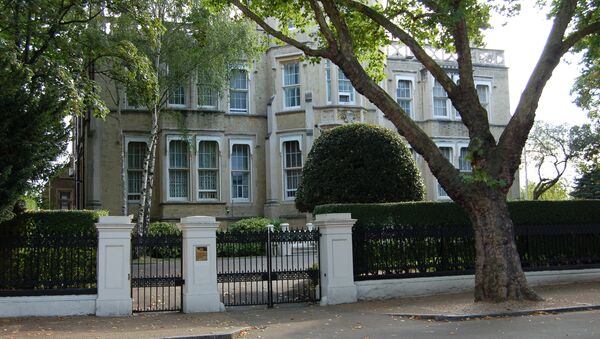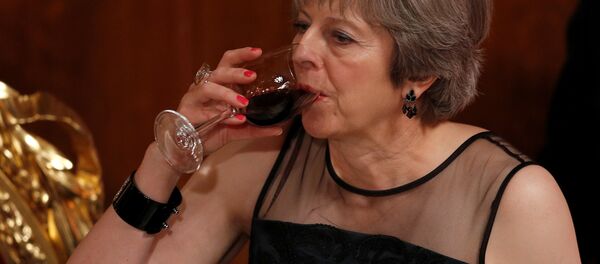"Unfortunately, the British press almost always refers to unpublished documents and other closed sources. Since the latest of them, concerning Russian-British relations, are making false accusations against us, we asked relevant universities — Edinburgh and Swansea in the UK and Berkeley in the US — to send us the source materials," the Russian Embassy's in the UK spokesperson has stated.
According to the Russian embassy, "in view of the anti-Russia campaign that emerged after the speech of UK Prime Minister Theresa May," it has a lot of questions to such documents.
"We absolutely do not accept unfounded accusations, which, by the way, lead to a loss of confidence in London also on the part of foreign partners."
In a major foreign policy speech at the Lord Mayor's Banquet at Mansion House in London late on Monday, May accused Russia of meddling in other states' affairs, spreading "fake stories" in media, aggressive policies "to sow discord in the West," claims slammed by Moscow as "irresponsible" and "groundless." However, a day later, May said that her accusations were not related to the UK.
Later on, the embassy reached out to Swansea University regarding its research on Russia's alleged attempts to meddle in Brexit referendum.
"We received a request from the Russian embassy on the research that's been cited and in response we've sent the embassy a copy of the findings, which we're happy to do as they are in the public domain," Swansea university spokesperson said.
READ MORE: Russian Foreign Ministry Trolls Theresa May on Twitter
Previously, Lavrov has called the allegations of Russia's interference in EU affairs that had arisen in several European states, including Britain, France and Germany, amid the probe into the alleged Russian meddling in the US presidential election "ridiculous."



